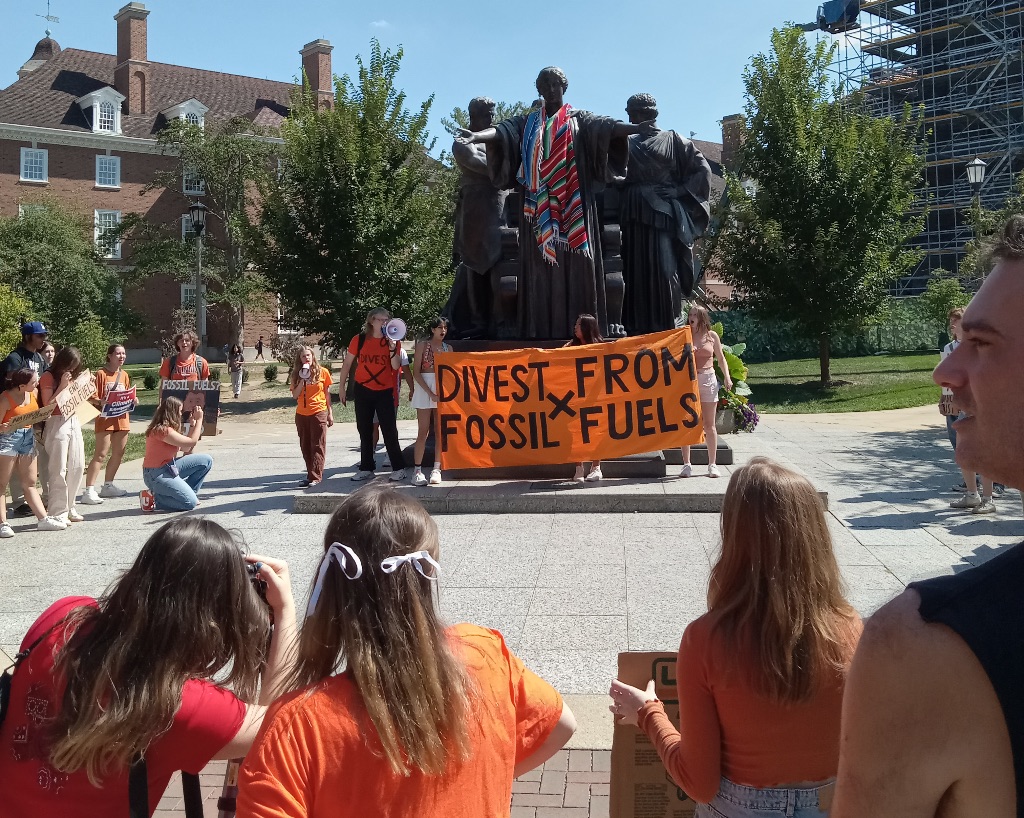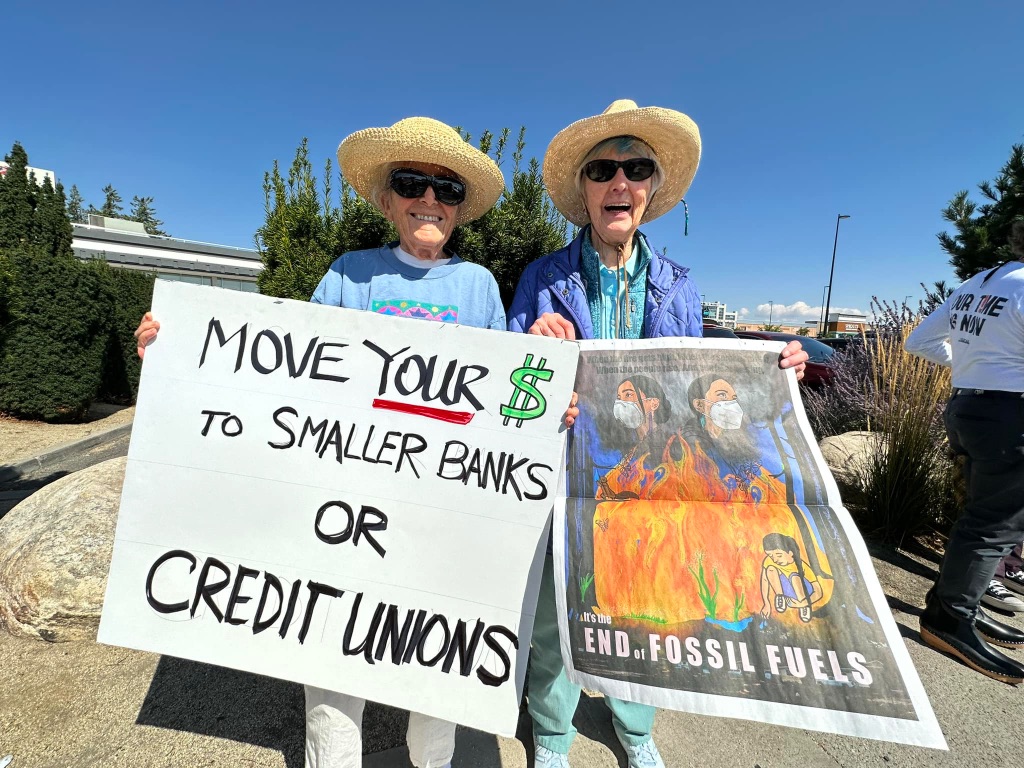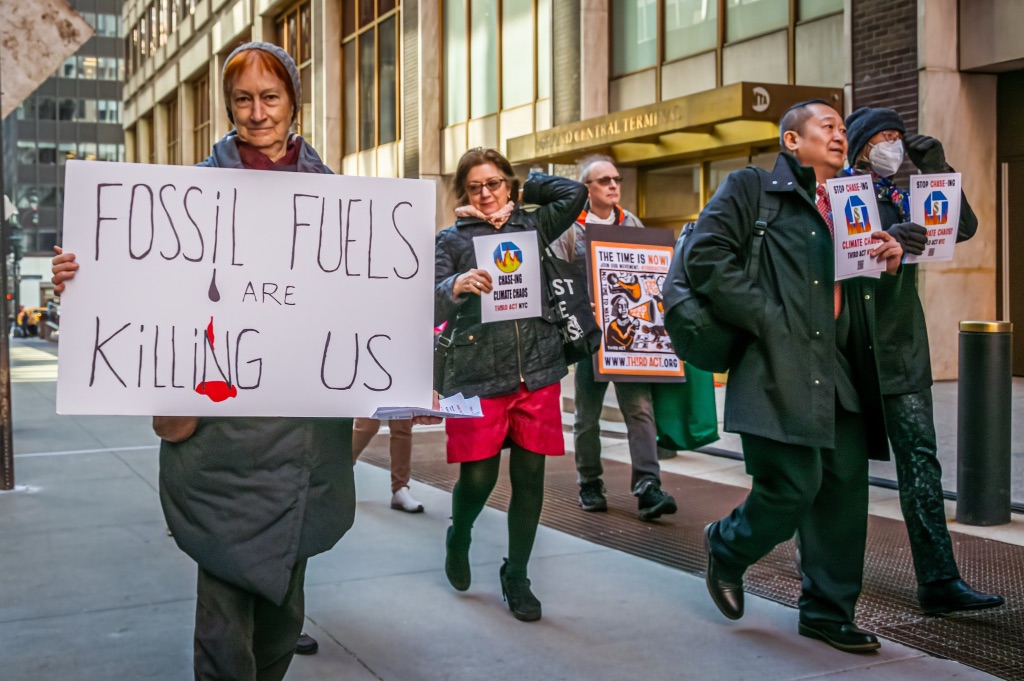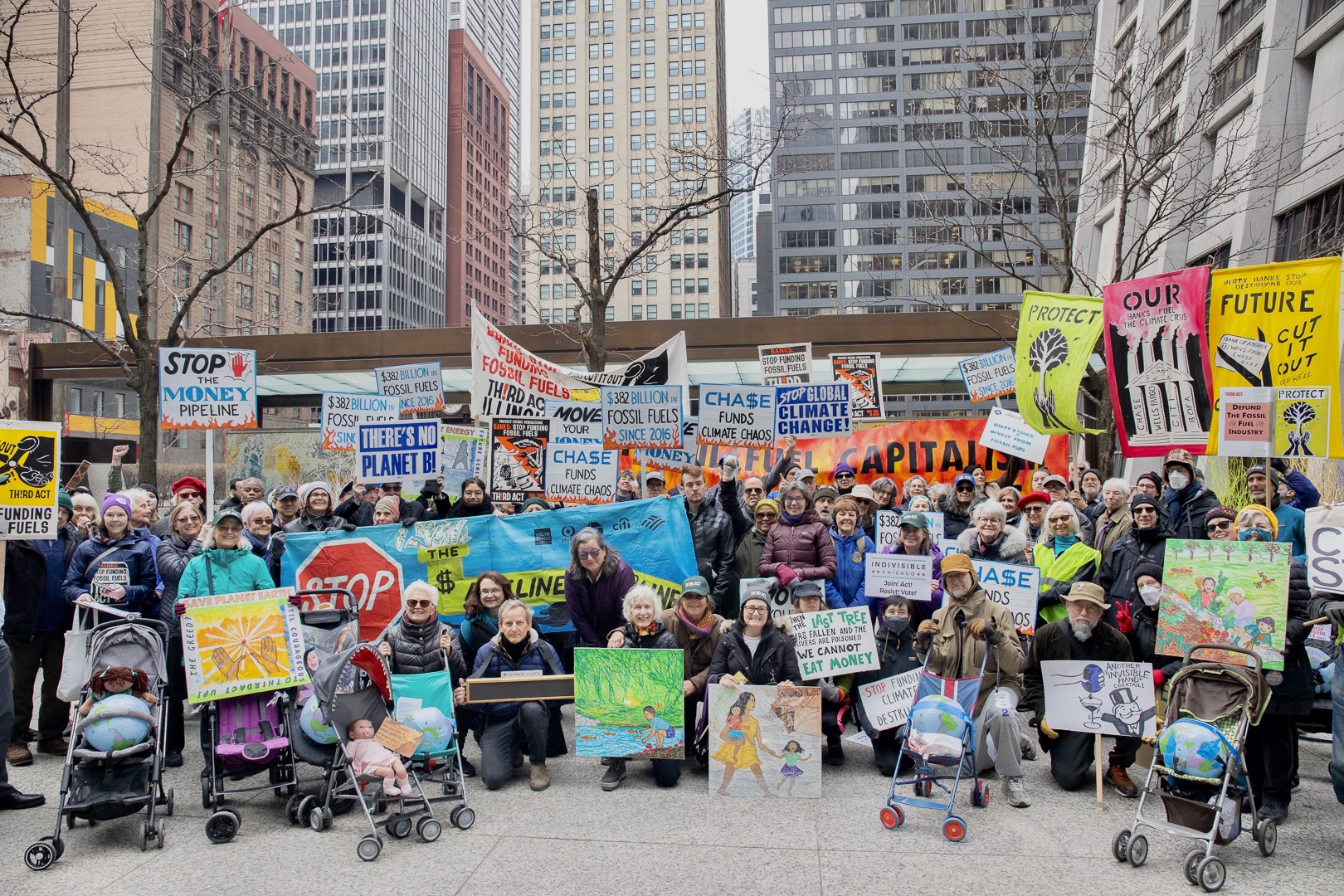Downstate Third Act (a branch of Third Act) is an organization working to protect the planet and support a vigorous democracy for people over the age of 60. Pat Simpson is a retired academic who got her doctorate at the University of Illinois, and taught mainly in labor and industrial relations at Loyola, but has always lived close to Champaign County. She has been active in social justice causes. Al Kagan is retired from the University of Illinois, where he was the African Studies bibliographer. He’s been very active in this community in anti-war activities, and does a lot of work with the American Library Association as well as work on sustainability. Both Simpson and Kagan sat down to chat with me about the work that they’re doing, why they started Downstate Third Act, and what goes into being old and bold.
This interview has been edited for length and clarity.
Smile Politely: Can you tell me a little bit about Downstate Third Act?
Pat Simpson: Downstate Third Act is affiliated with Illinois Third Act, which is they call them working groups. But it is a chapter of the National Third Act. The mission is to promote a sustainable planet and a vigorous democracy. The belief is that if we don’t have a vigorous democracy, we’re not going to be able to save the planet, because the vigorous democracy, in our view, is associated with the ability to pass laws and regulations and policies that help the environment.
More specifically, Illinois Third Act has been working on three basic areas: getting institutions to divest their investments in the fossil fuel industry—in other words, to starve the industry of capital it needs; we’re promoting what we’re calling democratizing energy; and we’ve encouraged people throughout the state to get involved with the Citizen Utility Board, or the appropriate environmental organization, to push local utilities to move forward with plans to come up with emphasis on alternative energy. The third area is to participate in democracy. There is going to be a lot of opportunity there with the elections coming up.
We are currently working on a bill supported by Illinois Third Act, HB 3037, which would require public pensioners in Illinois to divest from fossil fuels. Because we’re in Champaign-Urbana, we’ve also gotten involved with U of I students for environmental concerns.
Third Act is an organization that’s ready for civil disobedience.
Al Kagan: The Springfield Downstate model is something we aspire to. They’ve already got this coalition of various environmental groups. They’re all working together, which is a good model.

SP: Does Third Act also work with students? Or is that more specific to Downstate Third Act?
Simpson: I’m actively working with the students. One of the things that gets talked about all the time is how we should do intergenerational work.
The students made a presentation at the Illinois Third Act membership meetings. We had had at least six [students] that participated. The students are so fantastic. Talk about hope for the future. They made the presentation and after that they asked for Third Act Illinois to endorse, and [they] endorsed the students’ draft bill, but I think we’re the only group that’s now working very directly with the students.

SP: Third Act is for people 60 and older, right?
Simpson: It’s an impressive group. [Kagan] pointed out he loved the slogan old and bold. A lot of the folks who are a part of Third Act tend to be people who are older, who have social justice activist backgrounds. But what we’re also finding is that people who have never been involved with social justice issues before now have grandchildren, and they feel moved to try to do something, to make sure that this planet that we leave to them is in somewhat decent shape. I think that’s an important thing around membership to say, that’s not just social activists but people who are moved largely because of having grandchildren.
Kagan: And if you’re retired, you have more time.
Simpson: More time to get in trouble. Good trouble.
SP: Always. What was it about this work that drew you into it?
Kagan: I started doing environmental work in the Library Association. And I started doing that because I’m a member of the social responsibilities roundtable. We had a task force on the environment. So that’s where I first started learning about environmental issues. And then eventually, that task force became its own round table. I started working with both roundtables to try to do this divestment, because I think that’s one of the key ways we’re going to make an impact. If you can get organizations to stop supporting fossil fuels, then they’re gonna have to do something else.
Simpson: I’ve been a social justice advocate for many years in different arenas. But I also realized I probably have only a few more years left. I’m in the third act, to some extent; the twilight of my life. I’m healthy, but that’s the reality of aging. And I looked around and I thought about what I was concerned about. I have grandchildren, step-grandchildren, I’m an incredible animal lover, and I’ve always been concerned about racial justice. I think that many people still think of the environmental movement as a white people’s movement but marginalized communities around the world are the ones that are on the forefront of the damages that are coming from climate change. In many cases, if there is an infrastructure, it is reliant on fossil fuels. And so in some ways, this feels like an existential crisis.
SP: There are two specific bills that you are working on passing in Illinois. Can you talk a little bit about the process and the benefits of those being passed? I imagine that’s a lot of work.
Simpson: Just to focus on the process for the moment, what would typically happen with the bill is that an organization or whoever is interested in advocating for the bill works with an entity like the Illinois Environmental Console, which is a nonprofit, and is an advocate for environmental issues and concerns. HB 3037 is the public pension bill that is asking for those pension funds to divest, by stopping any further investment in fossil fuels in the first year and then divest from their holdings within five years. Typically, an entity would go to the Illinois Office of the Comptroller and get the language drafted. Then there’s the Legislative Research Bureau, which then puts the draft language into even further appropriate language for the legislature, then you have to find someone who’s going to sponsor the bill. So for HB 3037, the public pension bill, Representative Will Guzzardi is the sponsor. You need 60 or more co-sponsors in the House, and 30 in the Senate. The public pension bill has been introduced; Guzzardi is the sponsor, then there are a number of co-sponsors, including our own Carol Ammons. We’ve got about eight co-sponsors at this time. That means we’re also understanding that the bill will not be passed in this legislative session.
The other divestment initiative has Downstate Third Act supporting UI Students for Environmental Concerns (SECS), who have drafted a bill that would require the University of Illinois to divest fossil fuel holdings within the UI System’s endowment portfolio. This draft bill, known as the UI System Fossil Fuel Addendum, needs initial sponsors in the House and Senate and SECS has already held exploratory meetings with legislators and will continue with follow up efforts in early 2024. That bill is now looking for sponsors, so it hasn’t been introduced.

SP: What are some misconceptions about your organization or your work?
Simpson: One of the things that seems to be a concern about HB 3037 is what going to be the effect of divesting from fossil fuels on pensions. The S&P 500 index has essentially come forward with data that shows that where there is divestment, it has no adverse effect on the value of their returns; it could actually be a benefit, because the fossil fuel industry has been incredibly volatile. There has been an uptick in its profitability because of the war in Ukraine war, but the reality is that there is evidence that shows there’s no penalty. We’re beginning to get to the point where we want to say to financial managers if you’re meeting the fiduciary standard, you get out of fossil fuels, especially since the situation is only going to get worse.
Kagan: I think they know that already, these corporations are dinosaurs, they’re not going to last forever.
SP: Is it harder to find a sponsor or co-sponsors?
Simpson: A sponsor, because sponsors become permanently identified with the bill in a way that the co-sponsors don’t. They assume the burden.
SP: How can people get involved with Downstate Third Act?
Simpson: Email is the best way ([email protected]), there is also a Facebook site that’s been set up just recently.
SP: Anything else that you want to add or that you want people to know?
Simpson: We’re hoping to expand and members are welcome. Our next monthly meeting is in March.








